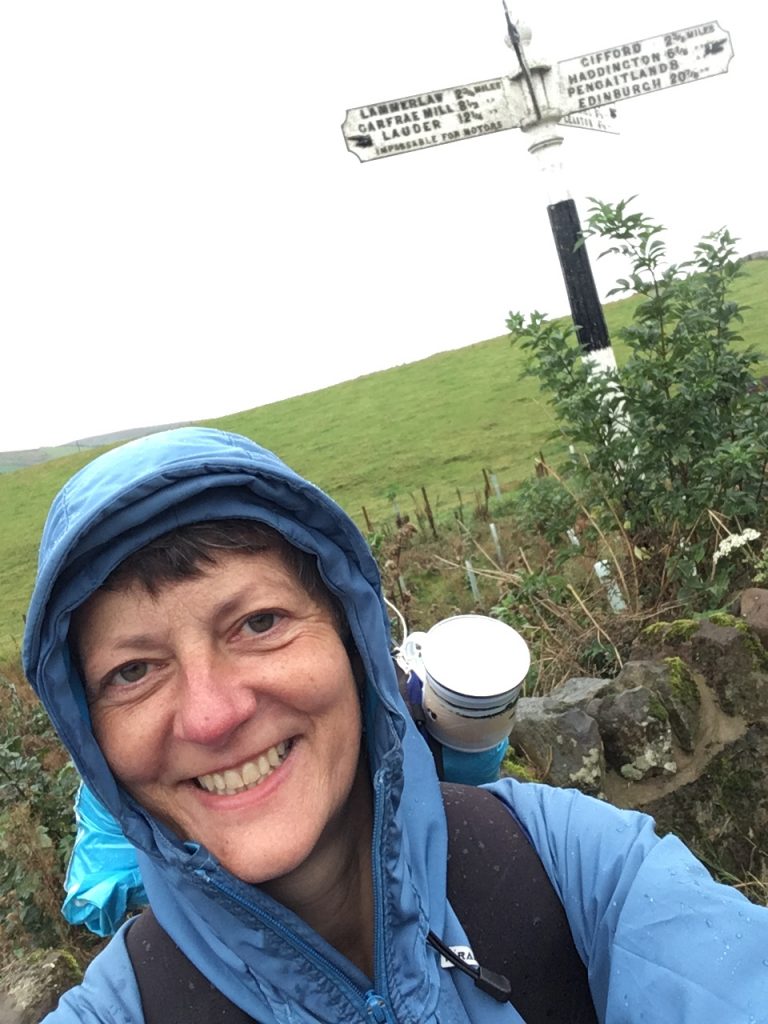Therapy journeys
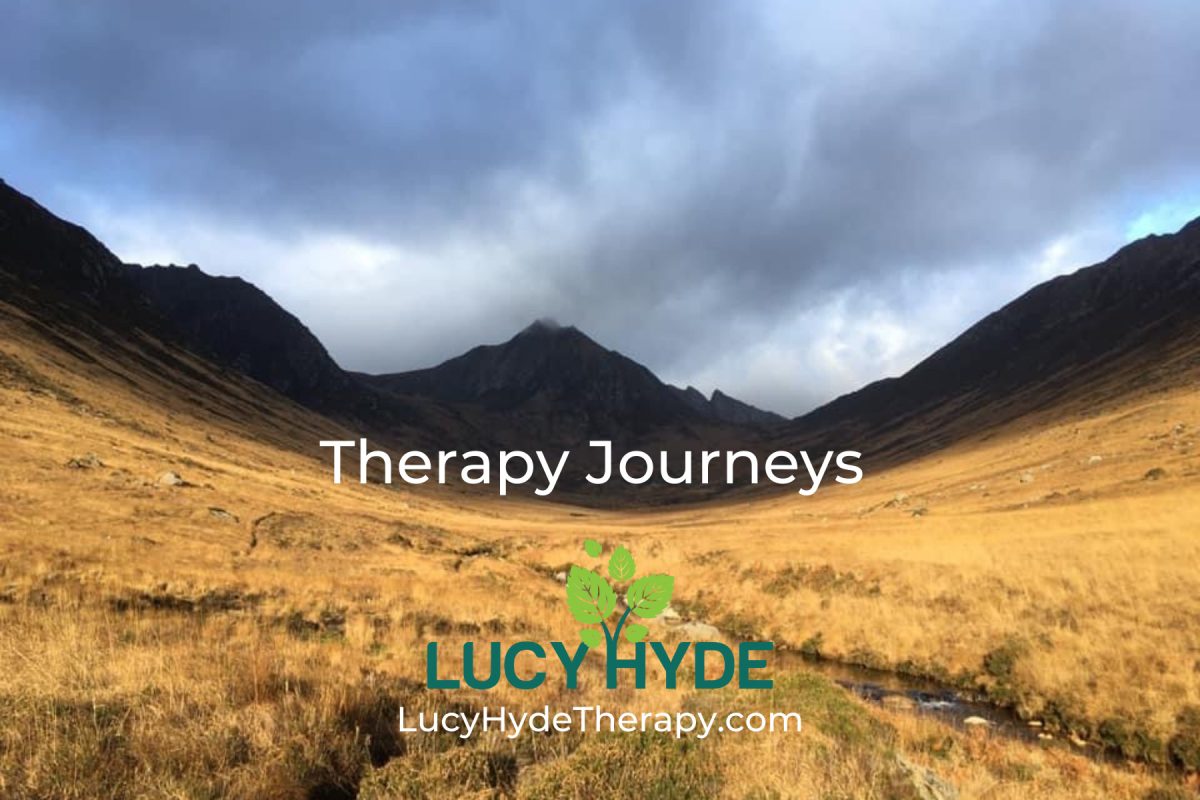
Often, some of the most vivid memories of a journey are when we’re not moving. Pausing to catch your breath as you climb a mountain, and taking the opportunity to look all around, to enjoy the view from where you are, right now.

I’m at one of those pauses, I think. I’m at the point of completing my Focusing Practitioner Training almost three years after I started this particular journey, and, as I gradually absorb that reality, it’s prompted me to reflect on the way in which my development (or growth, or expansion – there isn’t really a single word that captures it) as a therapist has happened in a number of phases. Inextricably intertwined with that professional development has been the personal growth that comes with those shifts and changes.
Learning to be human
The first shift was as I did my Counselling Skills Certificate, begun in 2010. For various reasons, that certificate course – often run over 6 or 7 months or less – took almost a year to complete. I learned during that time that I could do this work even if I didn’t feel completely confident in myself and didn’t believe that I was ‘fixed’ – no, more than that, I began to believe that I might actually be good at it even I wasn’t always completely tranquil mentally myself. I also learned that counselling and therapy could be a way to help me understand myself, rather than just a means to emergency-fix something that was broken.
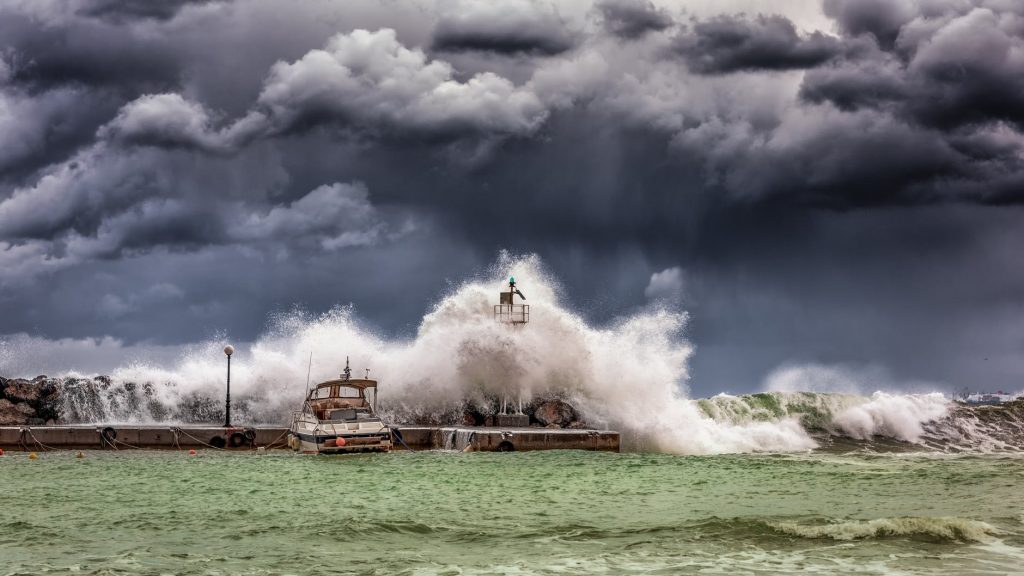
I needed all that time, to discover and internalise that belief. If I had done a 2-day workshop (provided by the organisation I then went on to train with as an alternative to the certificate course), I don’t think I’d have got there. In fact, I’m not sure how I would have reached the point of applying for a diploma course, without the time spent with my Certificate course-mates, the trust built with them and my trainer, the months of counselling alongside, that gave me space to figure out the meaning, for me personally, of what I was reading, learning and practising in those modules.
Learning how to be a therapist
The second phase was as I did my four years of TA training – my Diploma in Counselling with Transactional Analysis, followed by a further year of training (insurance policy for the possibility that I might want to progress to an analyst qualification later on). During the weekend workshops, and through the various essays, transcript analyses and case studies that were required to complete each year, I gained models and tools to help me understand myself – and to help me understand and think about others, including the clients I began to work with through my voluntary placement.
As I learned and became comfortable with particular models or theories (Transactional Analysis loves a diagram!) I began to share them with my clients, too. And those years of training supported my growth in confidence, not least through practice – the repeated sessions with clients that got me used to being a counsellor and believing I was a counsellor. To those placement clients, I was a counsellor from the very first session, which helped me believe it too. Although I learned to think about psychotherapy in the training room, I learned more about actually being a therapist from working with real people.
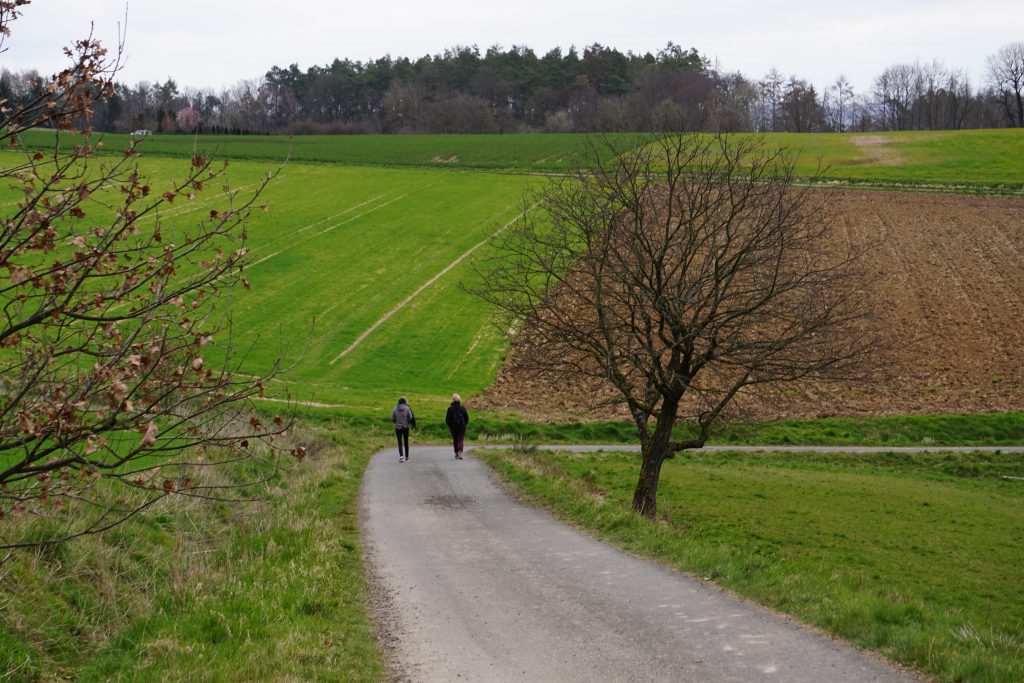
Learning to be me
Moving on to the third phase: this shift has occurred over the last year or two, as I’ve been completing my Focusing Practitioner Certification training. Focusing is a practice that was developed in the 1960s by Gene Gendlin, to help clients, for whom it didn’t come naturally to pause and check inside themselves for a bodily felt sense of their issues, to learn how to do so – in order to get a more lasting benefit from psychotherapy then doing it all in the head. (You can read more about Focusing, which can be used both in therapy and as a stand-alone exercise or practice, in this blog.
My Focusing experience started while I was in TA training but I’ve increasingly committed to it over the last 4 or 5 years, commencing my practitioner training nearly 3 years ago. This phase has been about me learning to use myself more in my counselling work, becoming more comfortable in my counselling skin. It has been a letting-go of some what I took on during my TA training, including the ideas I’d formed about what is required to be a Good Therapist. The Venn diagram balloons of ‘me as a person’ and ‘me as a therapist’ have a much greater overlap now.
These changes and more, came about through my own personal practice of Focusing, my own therapy with a Focusing-oriented counsellor, and the gradual introduction of Focusing into my own practice with clients. That all needed time.
A slower pace
I don’t believe any of these phases could have happened any more quickly. Focusing Practitioner training typically takes one and a half to two years; I took three. I could have embarked on it as soon as I finished my core psychotherapy training, but I’m not sure I’d have got to this place, where I am now, any sooner. Each development hasn’t simply been about workshops, training, reading, CPD hours; it’s required me to gradually incorporate what I learn into me, an evolution that’s taken place through my whole mind-and-body self.
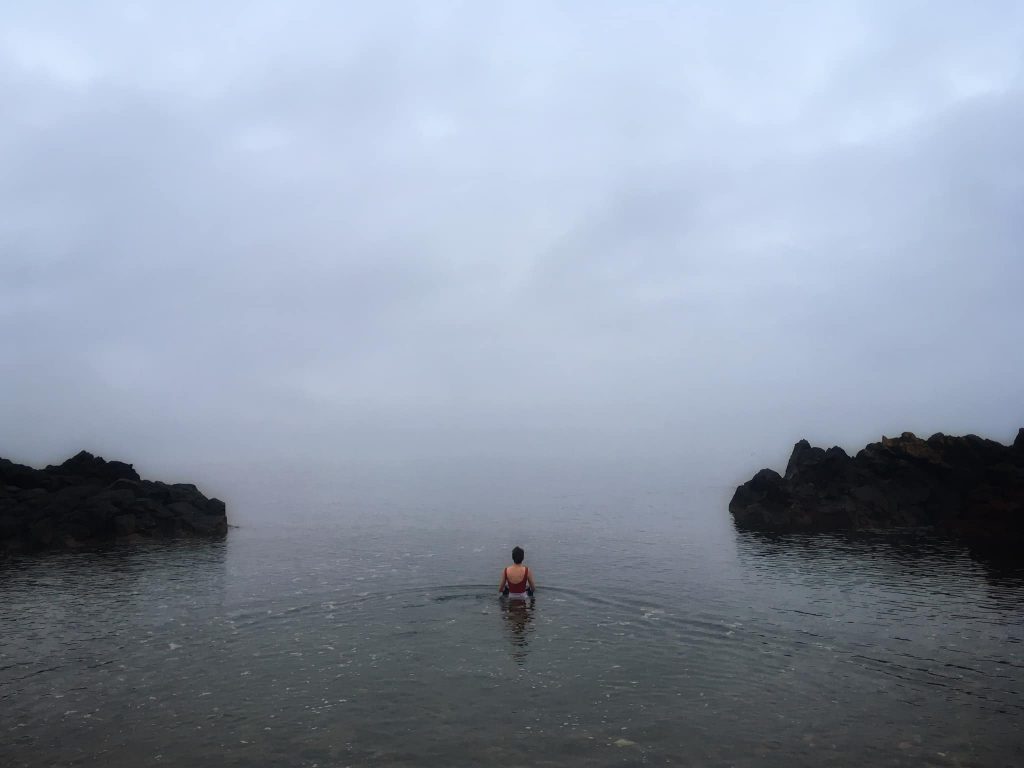
Recognising that, in itself, is a significant sign of a change in me. Most of my life, I’ve been driven by the belief that I need to get on with things quickly, that achievements are better the faster they happen. The realisation that this pace, including the times when I’ve
paused for breath
paused to notice my surroundings
paused to re-calibrate in the middle of something
….that this pace has been right, exactly right, for me, is powerful. I’ve meandered off down cul-de-sacs, I’ve taken radical changes of direction, and they’ve contributed too.
Journeying with clients
All this has prompted me to notice that the same is true for the journey of any client who comes looking for therapy – and how important it is to have those pauses in the journey. The pauses give you a chance to notice how far you’ve come, to notice what’s changed, they help you realise the things that you now know about yourself that you didn’t – that you can’t now un-know. Equally important, the pauses give you a chance to consider what direction you want to head in, from where you are now.
Just because you had a particular goal in mind when you first looked for a counsellor, it doesn’t mean that that same goal applies now, where you are, in your current place.
Sometimes a client will ask me the ‘right’ way to approach a problem, or they’ll ask what I normally tell people in their situation. I often say, I don’t have an answer to give, because everyone is on their own journey, and sometimes all you can do is pause for a breather and check – Where am I? Where have I come from? What direction do I want to go next?
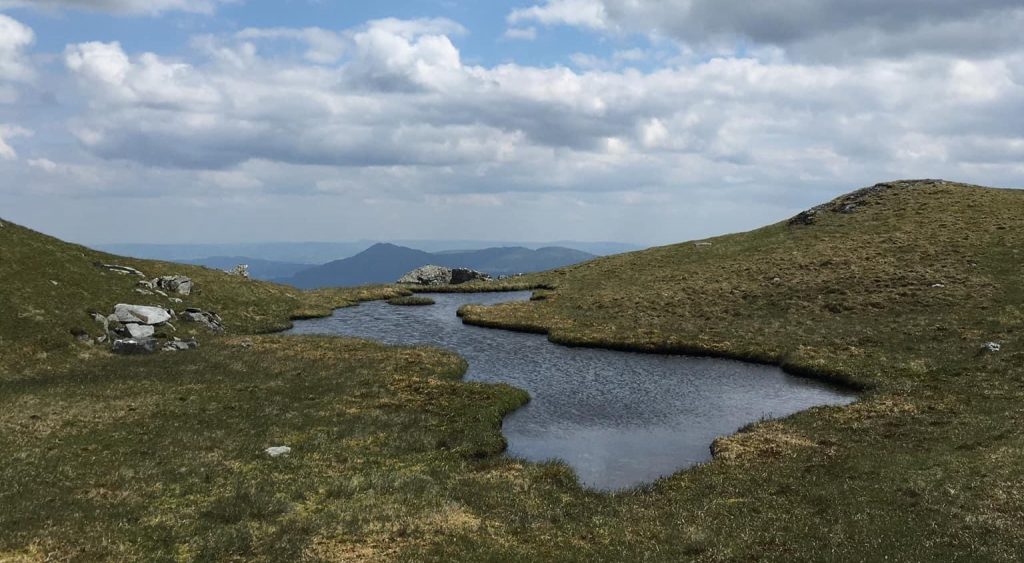
And the journey doesn’t take place in isolation – we’re affected and changed by what we see and experience. The first stage of my counselling training journey was in the aftermath of my mum’s death from cancer, and in the midst of the threat of redundancy and subsequent driven hard work and determination, with my colleagues, as we fought to make our section of a big national charity, Leuchie House, succeed as an independent organisation.
My dad died during the second phase, and I also discovered a new love – coastal rowing – that changed my sense of who I was (no longer the girly swot who never got picked for teams). The third stage began alongside the terrifying and exciting experience of living abroad, out of work, with limited language skills. Crucially, the clients, colleagues, the people I’ve worked with through all these stages, have played a part too. These experiences, and more, were woven through the journey, woven into me.
The way forward
I have some vague ideas of where I might want to go next – for example, thoughts about the work I do outdoors with clients and how we might allow the environment to take more of a role in that. These are hill-tops glimpsed between veils of cloud. For the moment, pausing where I am, reflecting on the last miles and not pushing on too quickly, is just the right place to be.
Perhaps YOU could pause and reflect on your own journey. You might be surprised what you notice.
